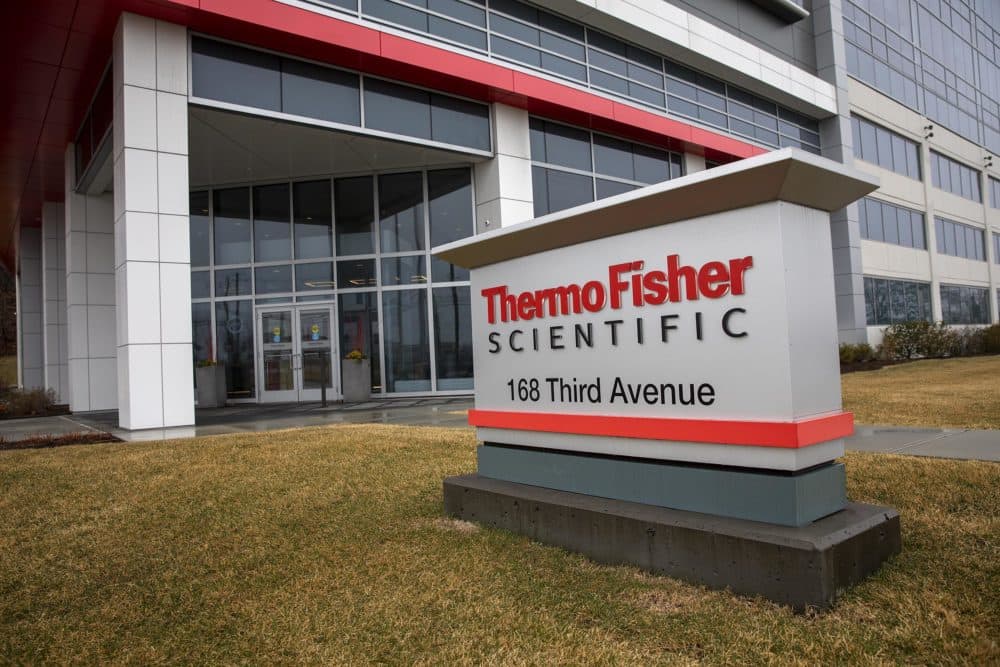Advertisement
Henrietta Lacks' family should get to benefit from her legacy, say grandson and attorney
ResumeMedical researchers around the world have made advances in everything from cancer care to AIDS treatment thanks to the availability of a remarkable set of human cells.
They're the first human cells to reproduce infinitely. Other cell lines before them died in the lab. These immortal cells even have a name: HeLa cells. But the history of the cells and the woman behind their name was ignored for decades. "He" was short for Henrietta. And "La" was for Lacks.
Henrietta Lacks was a young Black mother from the Baltimore area who had cervical cancer. In 1951, while undergoing treatment at Johns Hopkins Hospital, a doctor harvested some of her cancer cells without her consent or knowledge. He then started to reproduce those cells.

Now, 70 years later, Henrietta Lacks' family has filed suit against a biotechnology company they say has benefited from the use of her cells. That company is Thermo Fisher Scientific of Waltham. The lawsuit accuses the company of mass producing and selling Lacks' cells.
WBUR's All Things Considered host Lisa Mullins spoke with one of Henrietta Lacks' grandchildren, Ron Lacks, and Benjamin Crump, an attorney representing the Lacks estate.
Interview Highlights
On the claim Thermo Fisher has unjustly enriched itself using Henrietta Lacks' cells:
Crump: "Pharmaceutical companies have derived billions and billions of dollars in profit from her genetic makeup, her DNA. And so the crux of the matter of this lawsuit is, why is it that everybody else can benefit because of her cells, yet her family — her children and their children — have not received one red penny and benefit?"
On why Thermo Fisher is being sued now, long after Lacks' cells were harvested by other people before there were medical consent policies and laws:
Crump: "Why should they continue to benefit from the wrongdoing? Where's the justice in that? ... What they should have done is — all companies should do is — to respect the fact that Henrietta Lacks' life mattered, that Black lives matter and that you just can't say that it's irrelevant, that we can continue to profit billions of dollars, but yet her family don't get to derive any benefit. It was kept from the family for decades about the truth of what happened to Henrietta Lacks. So Thermo Fisher and other companies were all aware of this, but yet they chose not to do anything to try to make it right."
On what Henrietta Lacks' family went through after learning about what had happened to her and her cells:
Lacks: "Well, early on, my grandfather used to talk about my grandmother and tell the story. So when the family found out about the cells in 1973, we started to talk more about what was going on ... And we had tried to obtain lawyers. When we went to [the National Institutes of Health] and Johns Hopkins, they totally ignored my father at the table with his lawyer ... So I have to tell this story. I had to take back control of Henrietta's legacy. This is not right."
On the family's pride in knowing Henrietta's cells have helped many people, despite their dismay over how that has happened:
Lacks: "We look at my grandmother as a superhero. The family just is very proud that our grandmother's cells was able to help so many. I mean, there is no other narrative than that."
On why they are seeking financial compensation:
Crump: "You know, we as African-Americans find it offensive when you think about it in the full context. Henry Ford's family gets to define his legacy and gets to get benefit from his legacy, what he gave to the world with the automobile ... But this Black woman, Henrietta Lacks, her family doesn't get to benefit from her legacy, even though people are making billions and billions of dollars from what she gave the world. And so it's real offensive when Black people say we have a right to have equity and fairness, but yet people say, 'Oh, you should just be happy that your grandmother's cells helped make the world better and safer and contribute so much to science.' "
Lacks: "And just to take race out of it, just for a second ... I'm quite sure my grandmother's up in heaven and asking, 'What about my family?' It's just a natural reaction [of] any mother, that, 'If I can do this for the world, why can't you do for my family?' "
This segment aired on October 6, 2021.

